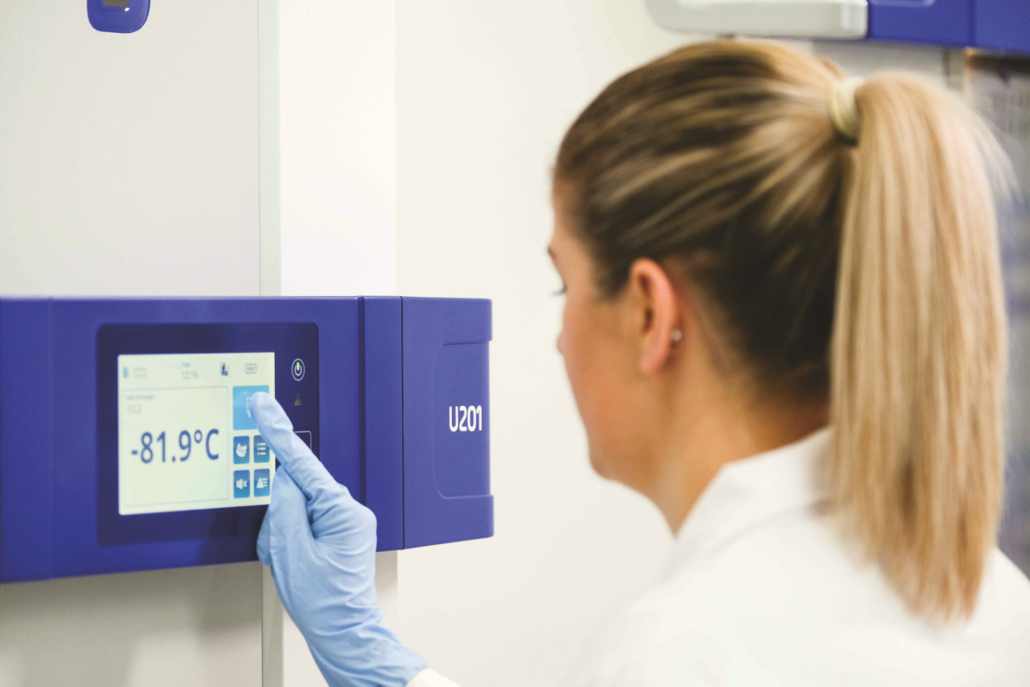
Ultra-low freezers: Stability of cancer biomarkers
Maintaining the integrity of tumour biomarkers during processing and storage is of great importance for the accurate diagnosis and prognosis of many diseases, including cancers. To safely store samples for research or clinical uses, freezing procedures are used to arrest the degradation of biomarkers. However, the stability of these molecules depends upon long-term storage conditions.
In oncology, biomarker testing identifies genes, proteins, and other substances that can reveal information about a cancer type since each one has a distinct pattern of biomarkers. The data can then be used to diagnose or classify the cancer type, estimate the prognosis, or select an appropriate treatment.
Specimens stored at ultra-low temperatures are generally preferred for these tests because most biomarkers, such as nucleic acids and protein molecules, are prone to degradation due to fixation procedures. On the other hand, biospecimens also contain degradative molecules like proteases, lipases, and nucleases, whose activities are greatly influenced by temperature.
ULTs for modern cancer research
Ultra-low freezers (also called ULTs) are essential for the storage of samples in cancer research and are especially important in maintaining the stability and quality of biomarkers. Therefore, the performance and the reliability of medical devices should be carefully analysed, and the flexibility in offering varying set points should be considered as it would help medical professionals choose the right storage temperature depending on the type of biomarkers being frozen and the length of the storage required. Moreover, the ULTs must maintain a uniform temperature inside their cabinets to best maintain the samples, while superior door opening recovery and hold over times will help ensure their safety even during adverse events. Certifications such as the EU MDR ensure compliance with regulations that govern the production of quality medical devices. Finally, energy-efficient operations and green refrigerants will ensure that laboratories will be able to achieve considerable sustainability levels.
Reliable ultra-low freezers
B Medical Systems offers a wide range of ULTs among its products, whose major feature is the flexibility in the operating temperature range as they can reliably reach temperatures between -86°C and -20°C. Moreover, the advanced cooling system allowing a constant and even temperature distribution, coupled with insulated inner doors, improved gasket seals and strong insulation, ensures a reliable storage environment for optimal sample safety. These products provide a rapid pull down, strong door opening recovery and holdover times, which help guarantee a stable internal temperature during door openings and even adverse events. B Medical Systems’ ULTs also use natural green refrigerants to reduce their environmental impact while increasing their overall cooling efficiency. These models are class II medical devices (EU MDR and US FDA), conform to EU F-Gas and US SNAP regulations, and the Energy Star certification is also available on some of them.
These models are trusted worldwide for their safety, quality, reliability, and energy efficiency. B Medical Systems’ ULTs are used all over the world and are currently supporting hospitals, blood banks, universities, and research institutes in their clinical and biomedical research efforts.
This article was originally published in European Biotechnology Magazine Winter Edition 2022.


 Bayer AG
Bayer AG
 Picture from Ferdinand Stöhr on Unsplash
Picture from Ferdinand Stöhr on Unsplash